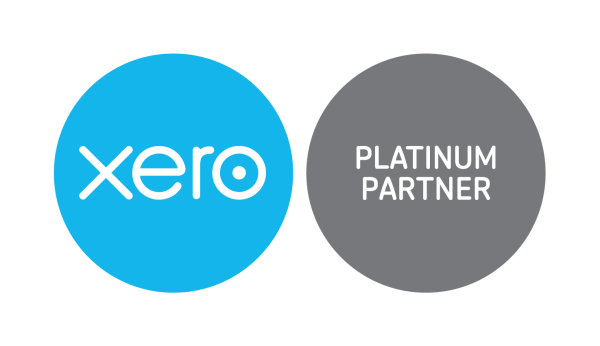Bookkeepers and Accountants: How to use both to best effect

Recent research carried out by Xero suggests that strong relationships with a professional advisor benefits the business. This includes accountants and bookkeepers. Business that survive being in business are more likely to have a strong relationship with a professional advisor than businesses that fail. View Xero Make or Break Report
What’s the difference between Bookkeepers and Accountants?
Bookkeepers and Accountants sometimes do the same work, but have a different skill set. In general a bookkeepers role is to record transactions and keep you financially organised, while accountants provide analysis, tax advice and business advisory.
Bookkeeping is an essential part of any business, and separate from accounting. The two services are often compared, very likely to be confused and sometimes seen as competing . But actually they are complementary and every business deals with both, whether doing it themselves or with bookkeeper and accountant partners.
Bookkeeping is the day-to-day work to keep the accounts accurate with all detail correctly recorded.
- Good bookkeeping is at the coal face of your business and can often see problems coming up in the business like cash flow shortages.
- Good bookkeeping will keep the cash moving in the business - making sure invoices get sent out promptly and correctly and following up with customers who haven’t paid on time.
- Good Bookkeeping will keep stress levels down by sorting out issues when customers and suppliers records of who owes who what, don’t agree. Answering questions about statements, getting back to people and follow up financial queries.
- Good Bookkeeping will save money by making sure day to day compliance doesn’t get missed – ensuring GST an PAYE gets filed on time.
- Good Bookkeeping will maximise efficiency with appropriate skills for best use of business software, and high speed transaction processing.
- An exceptional Bookkeeper will also know about add-ons to supercharge the business for success. (e.g. Job Management, Inventory, POS, CRM systems and other handy business tools)
Accounting is analysing accounts that have been created through bookkeeping
- Good accountants check over the accounts to look for any potential problems – looking for patterns, consistency, significant changes and potential errors.
- Good accountants make adjustments for legislative compliance – adding in depreciation, fringe benefit tax, currency adjustments, entertainment adjustments, equity transactions.
- Good accountants file tax returns and other official reports and can represent you with the IRD.
- Good accountants provide high level advisory services about the business identifying trends and potential issues, and providing an overview of industry norms.
Should I hire a bookkeeper and accountant, or can I do it myself?
Although in theory you can keep your own accounts and file our own tax returns but there are big risks in doing so.
- Your chances of failing in business are significantly increased if you don’t invest in strong relationships with business advisors such as bookkeepers and accountants (Xero-Make-or-break-report 2015).
- You risk getting seriously stressed from becoming bogged down in day to day transactional detail and being unable to focus on building your business
- You risk spiralling costs from missing compliance deadlines and IRD penalties
- You risk a big unexpected invoice from your accountant when they have to sort out your messy accounts at tax time.
- You risk being unable to make good business decisions from not having up to date and accurate data and advice.
How to get value from your bookkeeper:
- Protect yourself by working with a bookkeeper who is part of a network such as the New Zealand Bookkeepers Association. The Association provides a support network, resources, and requires professional development to maintain membership.
- Check what the back up is if your bookkeeper is suddenly unavailable for any reason. Are they part of a team?
- Can your bookkeeper work remotely without you having to make space/time in your office. Are they big on technology an using the latest apps?
- Will your bookkeeper not only carry out bookkeeping tasks, but challenge you to optimise use of technology and help make you as efficient as possible.
- Use cloud technology such as Xero to have your accounts in real time and to communicate with your bookkeeper.
- Don’t ask your bookkeeper to be a tax expert. They may know most of the rules, but are not trained to apply them in a wider context.
- Encourage your bookkeeper to work with your other financial advisors. Do they check with your accountant for clarity when needed?
How to get value from your accountant:
- Don’t pay for your accountant to do bookkeeping – you will likely pay a much higher hourly rate and often accountants don’t have the day to day expertise in operating software such as Xero.
- Do ask your accountant for their industry expertise and benchmarking knowledge. They are likely to have other clients in similar businesses to you, and will know how well you are doing comparatively.
- Do ask your accountant to for advice on your business and areas you might like to look at a little more closely, both potential problems and opportunities.
- Do ask your accountant to negotiate on your behalf with tax and compliance issues (trust accounts, business structure, fringe benefit tax, student allowances, kiwisaver, ACC etc) Accountants have access to IRD in ways that business owners do not and can often cut through red tape and get stuff done quickly and effectively.
Living Business and Bookkeeping
Living Business are a team of senior bookkeepers and Xero specialists. We are corporate members of the NZ Bookkeepers Association and all individual members. We are all individually Xero Certified and Living Business is a Xero Platinum Partner and a WorkflowMax Certified Implementation Specialist. We are not tax agents and work to support your relationships with other financial advisors. Check out our bookkeeping packages here for more info >
